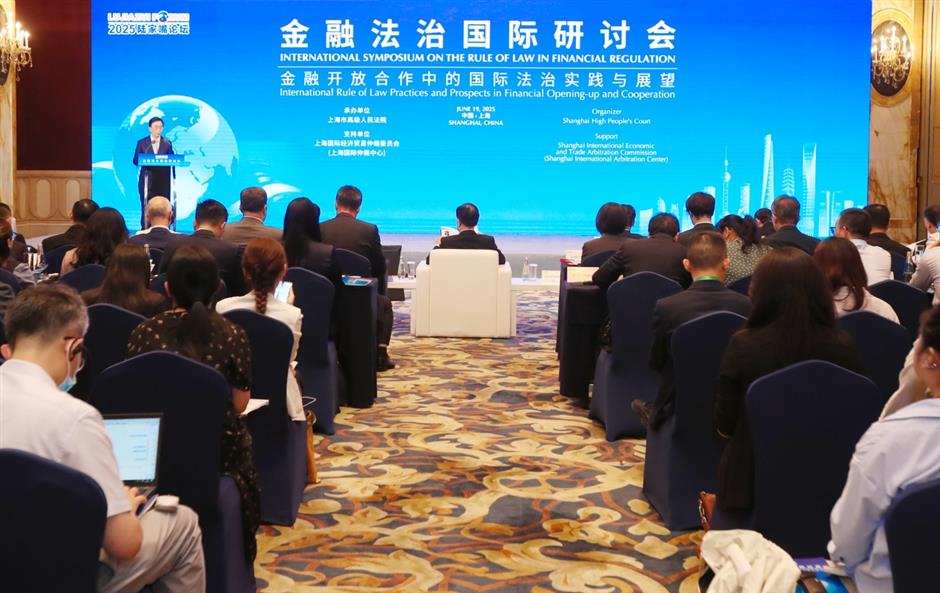Shanghai enhances legal framework for international finance

The International Symposium on the Rule of Law in Financial Regulation is part of this year's Lujiazui Forum.
The International Symposium on the Rule of Law in Financial Regulation was held in Shanghai on Thursday. The symposium is part of this year's Lujiazui Forum.
Centered on the legal practices and prospects in financial opening-up and cooperation, the symposium addressed key issues such as innovations in judicial mechanisms for finance, alignment of domestic and international legal frameworks, and judicial and regulatory responses to financial risks in the context of China's high-level financial opening-up.
One of the main topics of discussion was the role of Shanghai courts in supporting high-level financial opening-up.
Jia Yu, president of the Shanghai High People's Court, said total trading volume in Shanghai's financial markets exceeded 3,500 trillion yuan last year, while cross-border RMB settlements surpassed 25 trillion yuan. The number of financial institutions in the city rose to 1,782, with foreign institutions accounting for 35 percent.
"Shanghai courts have continued to optimize the rule-of-law business environment in recent years, providing high-quality judicial services to support the city's development as an international financial center," Jia said. "Experts from the World Bank have recognized our legal practices as a global model for financial rule of law."

One of the main topics of discussion was the role of Shanghai courts in supporting high-level financial opening-up.
Over the past five years, Shanghai courts have handled 3,418 financial and commercial cases involving foreign parties, as well as those from Hong Kong, Macau and Taiwan, with an annual growth rate consistently exceeding 10 percent. In more than 130 of these cases, foreign laws, international treaties, or international practices were cited.
The city's courts have also been building specialized mechanisms for adjudicating cross-border financial cases. Initiatives include forming dedicated judicial teams across the city, and refining multi-channel dispute resolution mechanisms to enhance capacity for international financial adjudication.
Zhao Hong, president of the Shanghai Financial Court, noted that the court had handled a number of complex, precedent-setting cases this year, helping to define the legal boundaries of financial transactions.
Digitalization is also playing a key role in advancing the rule of law in the financial sector. Jia noted that, so far, over 80 AI-powered models have been developed based on financial judicial data to improve trial efficiency and support financial governance. These models have already identified over 130 cases where financing leases were used to conceal de facto lending.
Shanghai courts aim to build a rules-based framework for adjudicating cross-border financial cases, develop a comprehensive case database, and shift from case-by-case rulings to systemic rule-making.
Efforts will also focus on enhancing international judicial cooperation and data sharing with financial regulators to strengthen cross-border financial governance.











